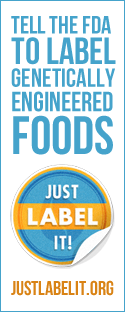|
Catering to Guests with Food Allergies By Dwayne Reno According to Food Allergy Canada, food allergies or Anaphylaxis (pronounced anna-fill-axis) is a growing issue in Canada. One in 13 Canadians, or 2.5 million Canadians are affected by food allergy and must consistently monitor the foods they consume. However, many Canadians with food allergies still like to dine out with friends and family which can cause additional stress for those involved. With food allergies on the rise does your restaurant, café or bar have the necessary protocols in place to deal with food sensitive customers?
In this article I would like to take a look at food allergies, also I will share resources that can help foodservice operators become allergy-friendly and some of the benefits for those willing to roll out the welcome mat for Canadians with food allergies. Rise in Food Sensitive Restaurant Guests A study from 2015 by a group of Allergen Investigators found that one in every 13 Canadians (2.5 million) reported having one food allergy. The study also found that “7.7 per cent of adults (2,165,425) and 6.9 (485,022) per cent of children under 18 years of age—self-report having at least one food allergy”. The research was in partnership with Health Canada, and co-led by Ann Clarke, a professor in the Department of Medicine at the University of Calgary, and Susan Elliott, a professor in the Department of Geography and Environmental Management at the University of Waterloo. Also, a more recent study published in The Journal of Allergy and Clinical Immunology found that women are more likely to have food allergies than men. The reason for this is not yet known, however the study does note that woman are more likely to report having food allergies than men, HERE. This is important information for independent foodservice operators to consider because according to food Allergy Canada, owner-operated restaurants are less likely to have a food allergy policy on hand compared to their fast food chain counterparts. In 2017, the fast food giant McDonald's an industry leader came under some heavy scrutiny when it decided to serve its first food containing peanuts or tree nuts (a priority allergen) not in an individual, sealed package. The move landed the fast food chain in some serious hot water as thousands of Canadians expressed their disappointment via a petition and social media posts, HERE. McDonald’s Canada CEO and president John Betts has since met with Laurie Harada, executive director of Food Allergy Canada. Although nothing has come from the meeting Laurie did say “What we agreed on as a starting point is to gain clarity around their allergen statement and processes and discuss how McDonald’s could improve upon their communications, HERE” The backlash over McDonald's removing its allergy policy is because food allergy prevention is solely placed on the consumer but that may change in the very near future. You see, A Toronto councilor James Pasternak, who represents Ward 10, York Centre, presented a motion back in March 2017 that would make it mandatory for all restaurants to have EpiPens on hand in case a customers has an allergic reaction. The article quoted a McMaster University study as the reason the motion was brought to City Hall. The study found that between 1986 and 2011, Ontario recorded at least 80 deaths from anaphylactic shock in Ontario. The study also stated that only nine of those who died had an auto-injector with them, HERE. Furthermore, according to a 2016 study by the Research Institute of the McGill University Health Centre (RI-MUHC) found that incidents of anaphylaxis (food allergies) are on the rise for children. The researchers also found that children who did not receive epinephrine before arriving at the Emergency Room were more likely to require two or more doses of epinephrine at the ER. With EpiPens costing $110 each and profit margins shrinking some independents foodservice operators may find it hard to shoulder this additional cost to their business. However, at anytime you could be faced with a customer who has a food allergy making this potential pool of customers one you cannot ignore. Becoming an Allergy-Friendly Restaurant For those independents who want to become a more allergy-friendly location here are two things to consider. Do you use any of the priority (common) allergens in your kitchen? The Government of Canada recognizes the most common food allergens as: peanuts, tree nuts, seafood (fish, shellfish, crustaceans), egg, milk, sesame, soy, mustard, and wheat. Sulphite, an additive found in dried fruit and wine, is also recognized by the Government of Canada. If you are using any of the above ingredients make sure it’s clearly indicated on your menu. More than 40 percent of Canadians read labels looking for allergen information so listing ingredients is a great first line of prevention. Are your staff members trained to check for any of the priority allergens listed above? This comes down to what practice if any do you and your staff employ to prevent allergy reactions. Something as simple as servers being trained to asked patrons if they have any allergies the kitchen staff should be aware of can do so much to prevent an allergy reaction. Online Resources and Training Also lots of great online resources and food allergy information can be found at websites such as Allergen.com and Food Allergy Canada. Also Food Allergy Canada and their partners have developed a food allergy training program for foodservice managers and their front line staff. The training program teaches foodservice employees how to prepare and serve food that is safe for customers with food allergies. Having a food allergy policy in place is a great way to build trust with individuals who have food allergies. Your food allergy policy can be as simple as reading food labels on your supplies, taking special precaution in food preparation and ensuring proper hand washing and station cleaning. Just make sure the policy is listed on signage and on your menu to help give customers some peace of mind when they choose to dine at your establishment. The Benefits of Reaching out to Guests with Food Sensitivities Repeat Business As someone who lives with an allergy to shellfish (shrimp and lobster) I understand what the 2.5 million other Canadians go through when they select a place away from home to dine. Many times I find myself going back to the same restaurants because they took all the necessary precautions to ease my tensions about eating away from home. This means that customers with food allergies can become return customers if you have done your part to ease any anxiety we might have about dining out. Word of Mouth Marketing One in two Canadians know someone with a serious food allergy. So by just having a food policy in place your regulars will begin to tell their friends and family members with food allergies about your allergy-friendly restaurant. This can lead to an increase in food sensitive customers talking about your eatery and even becoming a regular customer. For now we have no cure for food allergies and our understanding of how to treat and prevent allergies needs to improve. Until then we in the foodservice, food retail and food distribution industries must all do our part to make individuals with food allergies feel welcomed when they dine away from home. Until next time your customers want to know why they should spend money at your restaurant, bar or cafe. So give them the goods!
1 Comment
10/12/2018 08:50:34 pm
It's just right that there are allergy-free restaurants that are readily available for the pubic. It's a good thing because people have developed so many allergies through the food they eat, may it be in fast food or fine dining. I just hope that these restaurants are not just "mouth marketing" or just doing it just to attract costumers because it's quite dangerous to fool people especially when it involved food consumption.
Reply
Leave a Reply. |
Advertisement
AuthorDwayne Reno CEO & Founder Social Chat Blog
Once a month, Building Block Associates serves up some food for thought with our foodservice Social Chat Blog. Archives
February 2019
Categories
All
|


 RSS Feed
RSS Feed


